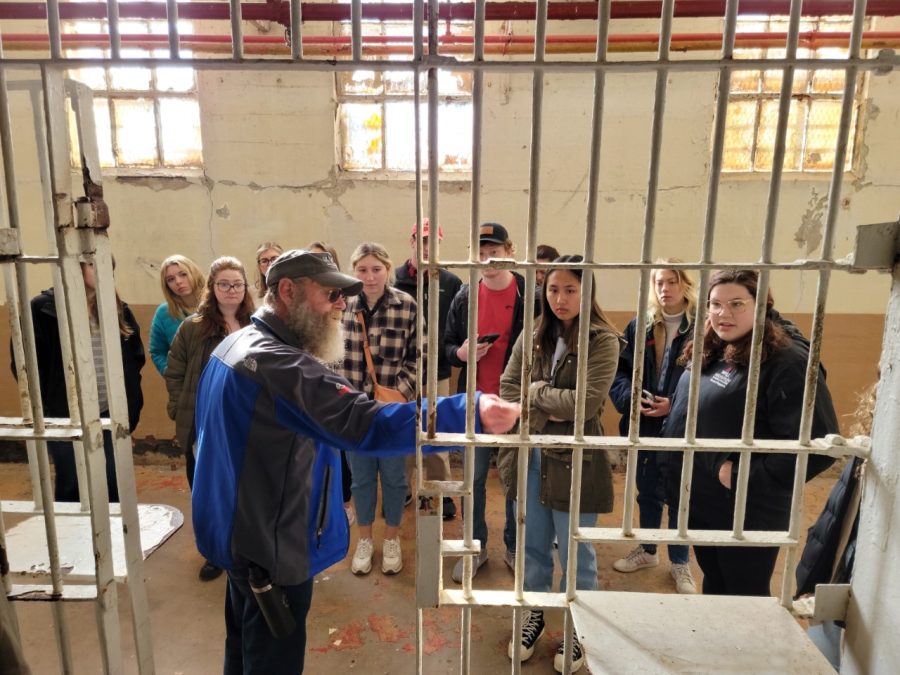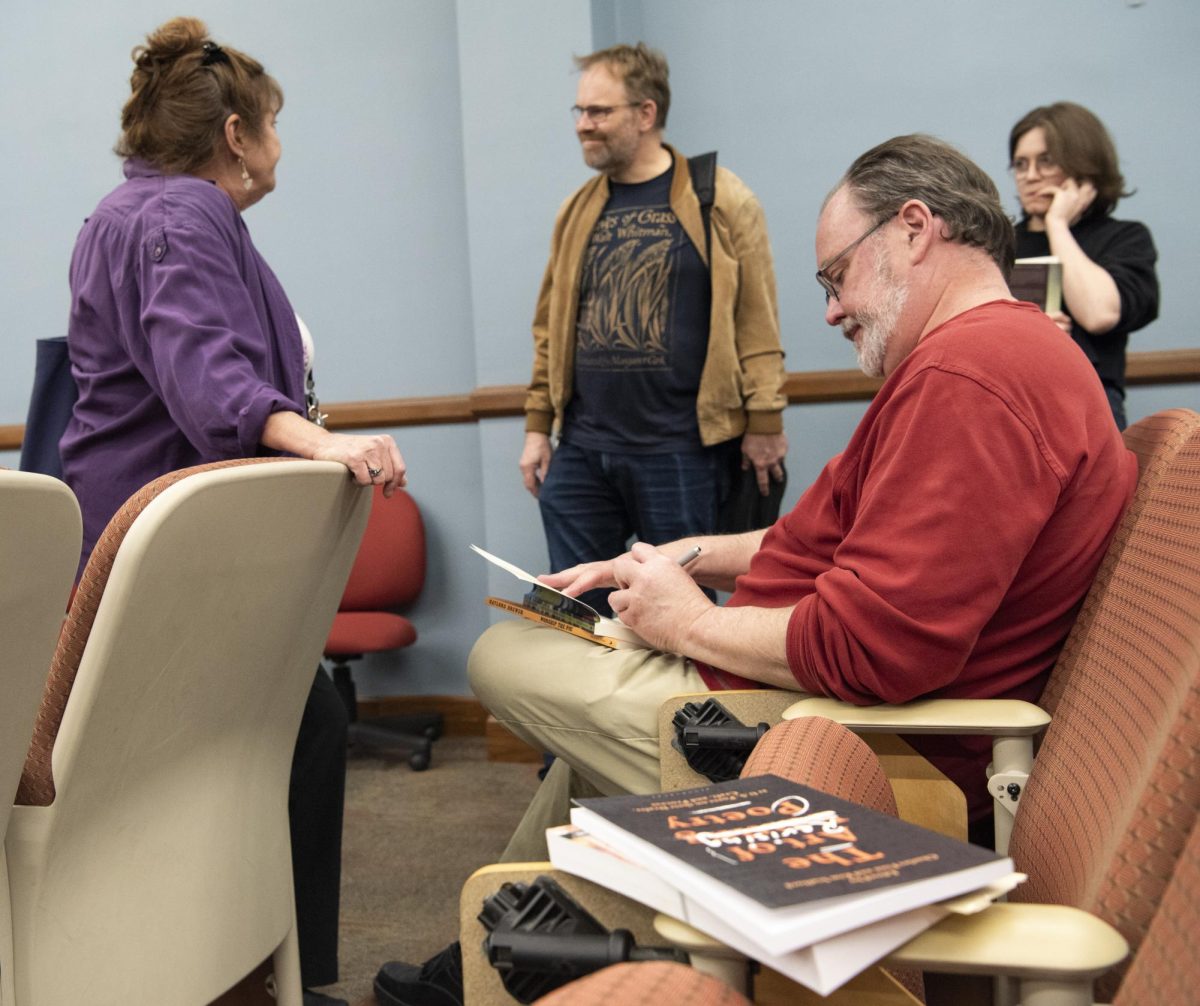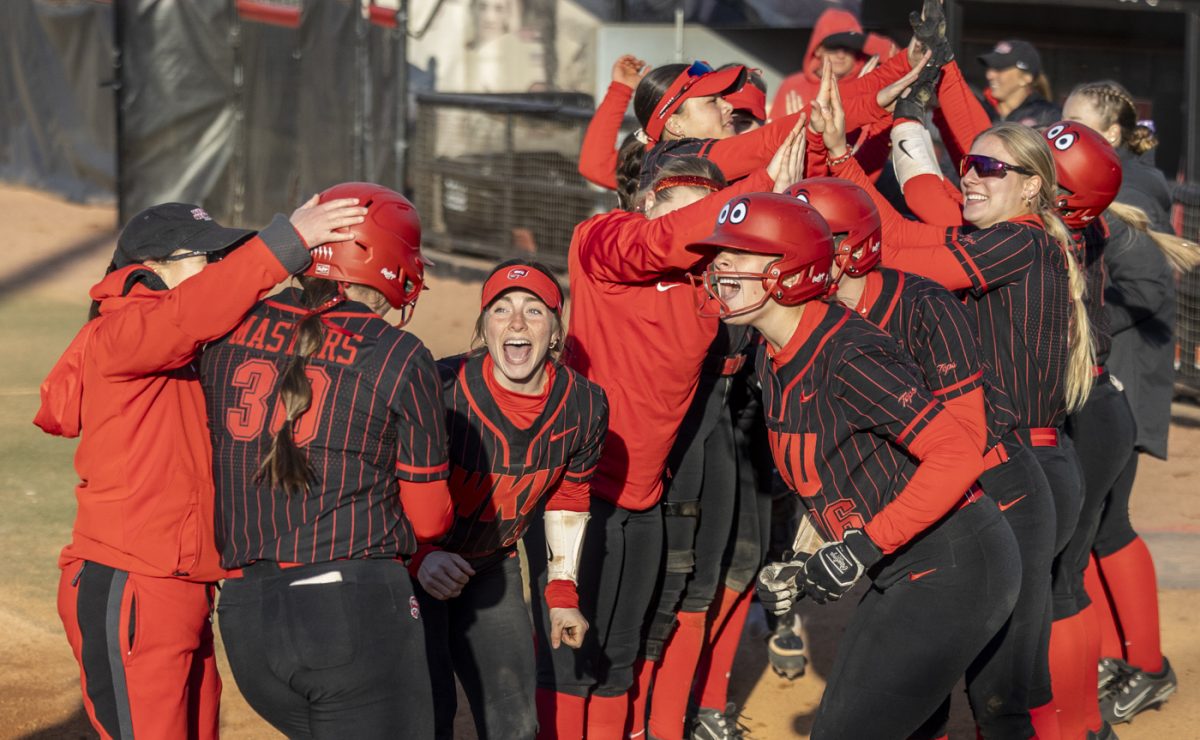Inside the walls of prison: Honors course explores the world of social bandits
Photo provided by Eric Knackmuhs
Students in the honors course “Public Enemies, Prisons and…Tourists?” receive a guided tour of Brushy Mountain State Penitentiary by a former inmate.
April 13, 2022
A WKU honors course focusing on public enemies, prisons and tourists went on a Tennessee field trip to both the Alcatraz East Crime Museum and Brushy Mountain State Penitentiary in early April.
The purpose of the class, titled “Public Enemies, Prisons and…Tourists?”, is to learn about the idea of the outlawed hero, or “social bandit.” The course material sets the scene for what kind of social and political conditions lead to the creation of these folk heroes.
“The field trip to Alcatraz East Crime Museum was to see some of the artifacts from those public enemies and what the students can learn from them being presented in a museum setting,” Eric Knackmuhs, assistant professor of recreation, park and nonprofit administration who teaches the course, said.
Knackmuhs chose these places for convenience, along with educational purposes. The course provides a glimpse into the world of prison tourism and the way that these heroes become enshrined in legend.
Before the trip, students researched various public enemies like Bonnie and Clyde. One student, Will Jackson, was intrigued to see how criminals can become heroes in the eyes of the public.
“Getting to go to the crime museum and prison was interesting because a lot of the artifacts that are on display are used to the advantage of the criminals being seen as folk heroes,” Jackson said. “It was interesting to see everything that we had studied play out before our eyes.”
Brushy Mountain State Penitentiary is perhaps best known for the escape of Martin Luther King Jr.’s assassin, James Earl Ray, in 1977. The tour was led by a former inmate, and Jackson felt that the penitentiary gave a more respectful interpretation of how prisons operate.
“It [had] a lot of impact because it made it more personal and we were able to learn about his story from his own words,” Jackson said. “It was so different because it wasn’t decorated, aside from a few museum plaques – it wasn’t really glorified.”
Jackson chose the course because it sounded interesting to him and the only requirement was a commitment to the field trip. He was glad he took the chance.
“[It was interesting] to see how the class developed for me, the people we were with, the discussions we had, and the way it was able to expand my thinking when learning about prison and public figures who are glorified,” Jackson said.
News Reporter Makaio Smith can be reached makaio.smith083@topper.wku.edu. Follow her on Twitter @MakaioSmith













